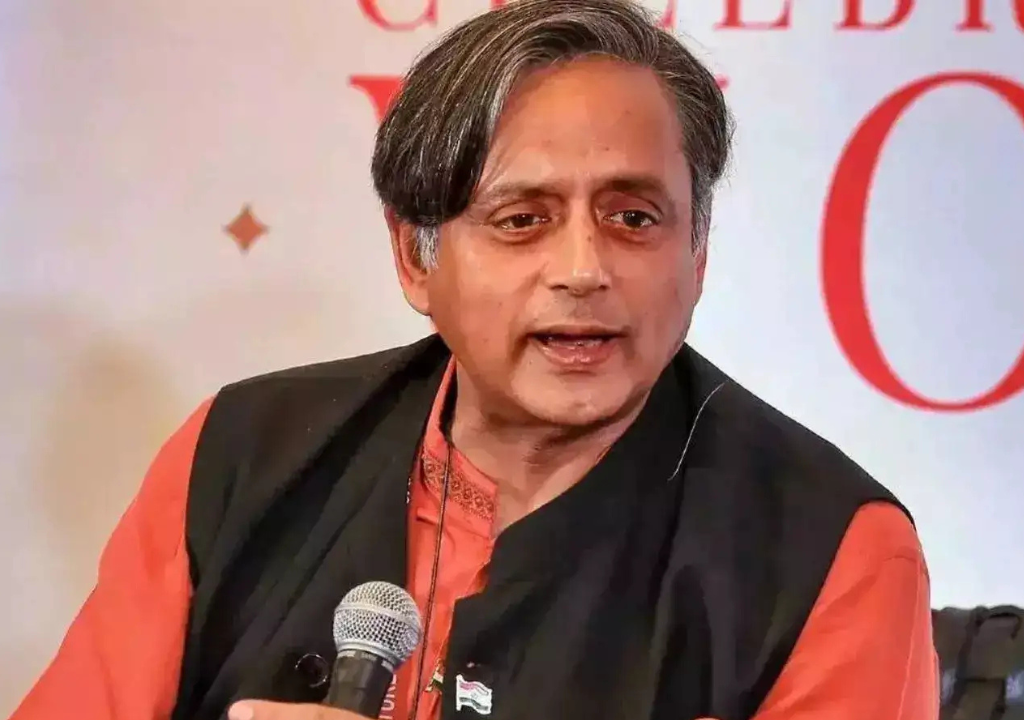Congress MP Shashi Tharoor has hailed the Operation Sindoor briefing as a well-calibrated and inclusive diplomatic signal that countered Pakistan’s propaganda with both restraint and unity. In a detailed interview with NDTV on May 8, 2025, Tharoor emphasized that the Indian government’s decision to field Foreign Secretary Vikram Misri, flanked by two women officers, including a Muslim officer, sent a powerful message to the global community that India stands united against terrorism, not divided by religion.
The Operation Sindoor briefing, conducted after India’s precision strikes on nine terror camps across Pakistan and Pakistan-Occupied Kashmir (POK), reinforced India’s commitment to targeted action without escalation — a move widely seen as both strategic and symbolic.
A Symbolic & Strategic Briefing: Who Represented India?
India’s government briefing on Operation Sindoor was handled with deliberate symbolism and clarity. The panel included:
- Vikram Misri, Foreign Secretary and a Kashmiri Pandit
- Colonel Sophiya Qureshi, a senior Muslim woman officer
- Wing Commander Vyomika Singh, representing the Air Force
Why This Matters:
Shashi Tharoor praised this lineup as a subtle rebuttal to Pakistan’s attempt to communalize India’s counter-terror efforts. He stated:
“This is not a Hindu-Muslim issue, as some Pakistanis are trying to portray. We are united as India against terrorism.”
Operation Sindoor: India’s Measured Response to Terrorism
On May 7, 2025, India launched 24 precision missile strikes on terror infrastructure in Pakistan and POK, killing over 70 terrorists in retaliation for the Pahalgam terror attack that claimed 26 lives. The strikes deliberately avoided civilian areas and Pakistani military installations.
“We avoided collateral damage and ensured the operation was purely against terror bases,” Tharoor highlighted.
A Direct Message to Pakistan Army Chief Asim Munir
Tharoor said the Operation Sindoor briefing served as a direct response to Pak Army Chief General Asim Munir, who had previously made controversial remarks suggesting Hindus and Muslims cannot live together peacefully.
“We demonstrated that not only do Hindus and Muslims live together in India, but they stand united against terrorism. What a wonderful message to send,” said Tharoor.
Congress’s Stand on Operation Sindoor
The Congress MP clarified that the Congress party supports the Indian armed forces’ actions and sees the strike as necessary and justified.
“We stand behind our forces. This was a focused retaliation, not a step towards war,” Tharoor affirmed.
Global Response: Strategic Silence and Subtle Support
Shashi Tharoor noted that while France, Russia, and Israel explicitly supported India’s right to self-defence, other nations adopted a more measured tone, urging restraint.
Global Reactions Summary:
- France, Russia, Israel – Expressed understanding of India’s actions
- China – Urged calm, refused to take sides, advised diplomacy
- US & UK – Issued cautious statements calling for de-escalation
“The world does not want to see another war. Everyone is counseling restraint — particularly to Pakistan,” said Tharoor.
Precision & Restraint: Core of India’s Strategy
The strikes were conducted after 1 am to ensure zero civilian casualties, and no Pakistani military or government targets were hit.
“We did not strike military assets even though we believe the Pakistan Army is deeply complicit,” Tharoor stated.
India’s careful planning demonstrates its intention to punish terror perpetrators, not provoke full-scale conflict.
Conclusion
The Operation Sindoor briefing represents India’s evolving defence diplomacy — where message, optics, and strategy align to counter not just terrorists, but also the misinformation war led by Pakistan. With the world watching closely, India’s response stands out as firm yet responsible, and its political leadership, including voices from the Opposition, appears united in supporting the nation’s security interests.

